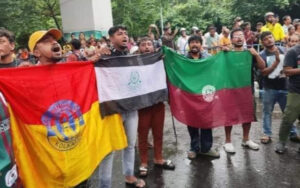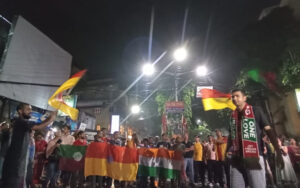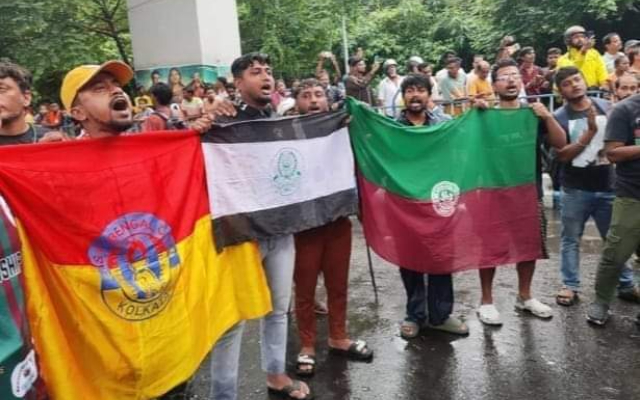
Why was Mohun Bagan club formed in 1889? Why was East Bengal Club set up in 1920? What were the reasons? What was the context?
In very simple terms, to protest against some form of discrimination and raise a voice. When Mohun Bagan played bare-footed against East Yorkshire regiment in 1911 and won the IFA shield, it was a form of protest against colonial rule. More importantly, the victory procession that walked around the city soon after and included thousands was seen as a form of assertion. Football was looked upon as a form of peaceful protest against the discriminatory attitude of the British. It was a ‘Yes, we can’ moment for us in India.
Similarly, the formation of East Bengal was also rooted in protesting against injustice and discrimination. And while the football on the field defines these clubs and who they are, the larger role they play in society is as important or significant. They unite people and bond them together. They allow people to have a voice and help forge a collective. They help overcome divisions. That’s what was visible in Kolkata yesterday when thousands of supporters got together at the Salt Lake Stadium demanding justice. They weren’t East Bengal or Mohun Bagan or Mohammedan Sporting when they came together. Rather, they were citizens of the city and beyond, who were all using the prism of sport to raise their voice and make themselves heard. They were all crusaders for justice.
For the Latest Sports News: Click Here

The best part of the march was that supporters from all clubs came together, leaving aside their differences. Sport does that, and that’s why it is what it is. When Mohun Bagan won the IFA Shield in 1911, it sparked pan-Indian sentiments. When the protest march happened yesterday, it was something every citizen of the city empathised with. Sport is not just about medals won and records broken, or goals scored and trophies won. Sport is much more and that’s what makes for continuity between 1911 and 2024.
Such protests lie at the very core of what is widely understood as ‘Olympism’, for example. As the popular saying goes in Olympic circles, “Take sports out of the Olympics, and you still have the movement to fall back on.” While this is certainly an exaggeration, it is time to accept that the Olympics or the protest march in Kolkata are never only about sportspeople. The Olympic torch relay is not restricted to countries that win the most medals or those that have the best sports facilities for its athletes. Rather, it is meant as a mechanism to include the mass support in the poorest of countries, men and women who are hardly likely to make it to an Olympic sporting contest.
That is why, traditionally, attendance at the Olympic torch relay is free. While Olympic sports competitions are prohibitively expensive, enthusiasts don’t need tickets to attend the relay. In Kolkata, few had tickets to the derby. To attend the protest march, you did not need a ticket. It was there for you to be a part of, and make your voice heard peacefully and constitutionally.

For countries that can’t dream of hosting the g=Games in view of the escalating costs, the torch relay remains the second-best alternative. For many who had no access to tickets to watch Mohun Bagan and East Bengal, the protest march allowed for inclusion.
It is this aspect of sport that makes it relevant for each one of us in a divided world. And maybe that’s why sport has emerged as an enduring symbol of global harmony and mobilisation.
Also Read: Kolkata and Delhi, Derby and Vinesh: Sport, politics and gender




